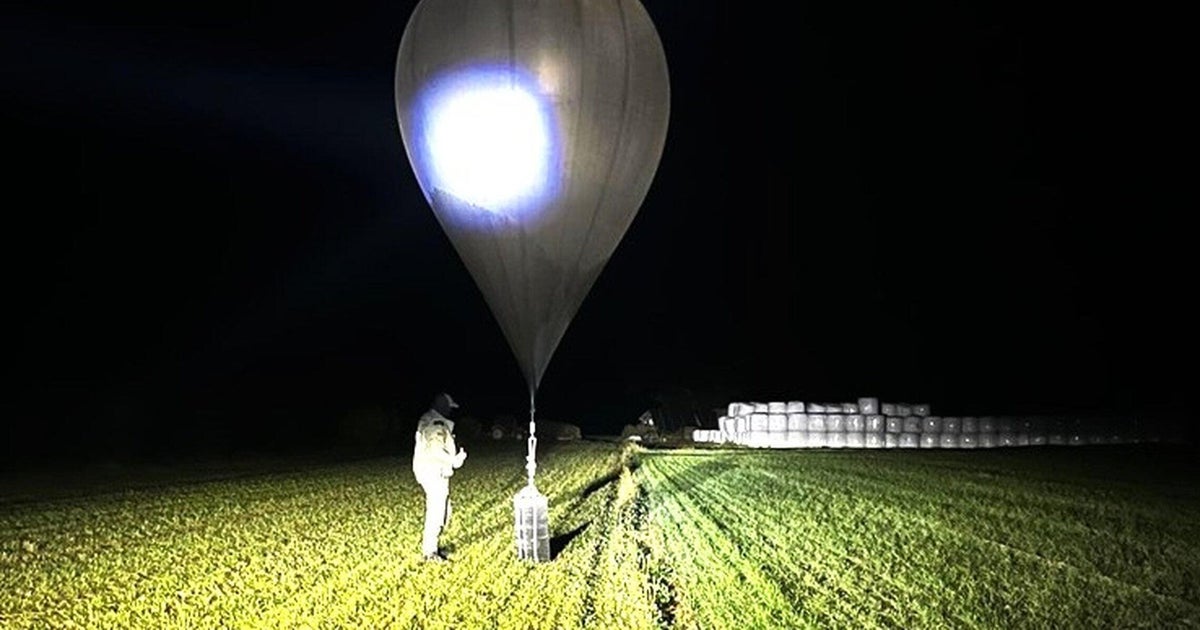**Lithuania to Shoot Down Unidentified Balloons Entering Its Airspace Amid Rising Tensions**
The government of Lithuania, a member of the U.S.-led NATO alliance, announced on Monday that it will begin shooting down unidentified balloons entering the country’s airspace. This decision follows multiple incidents last week in which balloons—allegedly launched from neighboring Belarus—forced the repeated closure of Vilnius International Airport, a major hub serving the capital city.
Prime Minister Inga Ruginiene warned that any further balloons detected will be shot down. She described the incidents as “hybrid attacks,” emphasizing the serious nature of the situation. “Today we have decided to take the strictest measures, there is no other way,” Ruginiene told journalists, according to Lithuanian public broadcaster LRT.
The ongoing disruptions at Vilnius airport led to operations being halted a total of four times last week. In response, Ruginiene indicated that Lithuania could consider invoking Article 4 of the NATO treaty, which allows any member state sensing a threat to its security to request consultations with allies. Article 4 has been invoked nine times in NATO’s history, including three times related to Russia’s invasion of Ukraine.
### Suspected Smuggling or Deliberate Provocations?
Lithuania believes smugglers use these balloons to transport contraband cigarettes across the border. However, the government has criticized Belarusian President Alexander Lukashenko, a close ally of Russia’s Vladimir Putin, for failing to clamp down on these activities.
“Inaction is also an action,” Ruginiene stated after a meeting of the country’s National Security Commission on Monday. She added that if Belarus does not take steps to stop the balloons, Lithuania will respond accordingly.
In a further move, Lithuania announced the indefinite closure of its land border with Belarus, except for diplomats and returning European Union nationals. “This is how we send a signal to Belarus and say that no hybrid attack will be tolerated here. We will take all the strictest measures to stop such attacks,” Ruginiene said.
Her office later released a statement to CBS News, saying, “Our response will determine how far autocrats dare to go.” As of now, Belarusian officials have not commented on the incidents.
### A Pattern of Hybrid Warfare in the Region
Several of America’s European allies have reported recent airspace breaches, mostly involving unidentified drones near airports and military facilities across Germany, Denmark, and the Baltic states.
Estonia has also accused Russian fighter jets of violating its airspace for 12 minutes in mid-September. Lithuania’s Foreign Minister Kestutis Budrys described the surge in airspace violations as a “deliberate escalation of hybrid warfare from Russia and its proxy, Belarus.” He labeled these acts as “calculated provocations designed to destabilize, distract, and test NATO’s resolve.”
Budrys called for stronger sanctions against Belarus and enhanced NATO security measures to deter further violations.
### Recent Incidents Escalate Tensions
On October 23, Lithuania reported that a Russian Sukhoi SU-30 fighter jet and an IL-78 tanker plane flew nearly half a mile into Lithuanian territory after departing from the Russian exclave of Kaliningrad. This Baltic Sea coastal territory is separated from mainland Russia and bordered by Lithuania and Poland.
Just two days earlier, Lithuanian radar detected several “meteorological balloons” launched from Belarus inside its airspace, disrupting travel at Vilnius airport, the foreign ministry confirmed.
In response to these violations, Lithuania summoned Belarus’s top diplomat on October 22 to issue a “strong protest,” warning that Vilnius “reserves the right to take appropriate retaliatory measures.”
According to Lithuania’s National Crisis Management Center, at least 544 balloons have entered Lithuanian airspace so far this year, with a total of 966 incursions recorded in 2024. These figures were reported by BBC News, a partner of CBS News.
### Strengthening Defense and Readiness
Reflecting on past lapses, Prime Minister Ruginiene acknowledged, “Last year we were blind chickens and didn’t see many things. Thank God, there was no catastrophe.”
She highlighted improvements in Lithuania’s surveillance capabilities: “We didn’t see certain moving objects, so there were no decisions to close the airspace. Today, we have much better equipment; we can see much more information.”
“We believe that we need to take action to protect our citizens,” Ruginiene concluded.
—
Lithuania’s firm stance against airspace violations underscores the growing concern over hybrid warfare tactics in Eastern Europe and highlights the challenges NATO faces in maintaining regional security amid escalating tensions.
https://www.cbsnews.com/news/lithuania-belarus-russia-nato-hybrid-warfare-balloons-shut-down-vilnius-airport/


